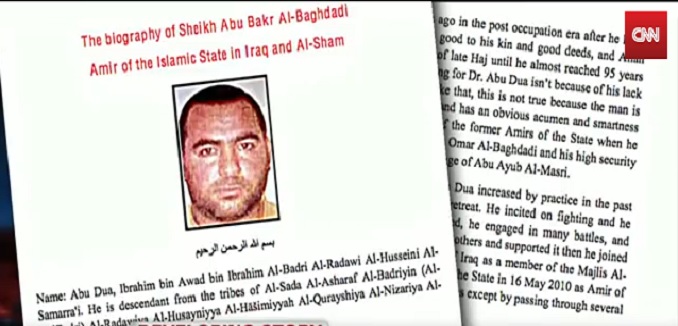Reports surfaced over the weekend that the Islamic State in Iraq and the Levant (ISIS) had announced it had reformed the caliphate – an Islamic state stretching across the region – headed by ISIS chief Abu Bakr al Baghdadi:
In the statement—released in Arabic, English, German, French, and Russian—ISIS claimed that it had fulfilled all the legal requirements for the caliphate and that all existing jihadi groups and indeed all Muslims around the world were religiously obligated to swear loyalty to the new Caliph Ibrahim (using the name provided by ISIS in the course of proving that Baghdadi has the required lineage for the title).
The news will be read alongside increasing concerns over the degree to which Iran has strengthened both Sunni and Shiite extremists in Iraq in recent years, deepening sectarian tensions in the country.
President Barack Obama last week blasted the Islamic republic for supporting Iraqi Shiites at the expense of an inclusive government, and the Washington Free Beacon reported that Tehran had provided shelter and protection to Musab al-Zarqawi, the founder of Al Qaeda in Iraq (AQI), the predecessor of ISIS during the 2000s.
Last week, Mohsen Milani, executive director of the Center for Strategic & Diplomatic Studies and a political professor at the University of South Florida, worried that Iran’s history of stoking sectarianism in Iraq had been a boon to ISIS:
But Iran seems more reluctant to admit that the United States has a somewhat different vision of how peace can sustainably be restored in Iraq. Iraq will not remain stable so long as Shia exclusively dominate the Iraqi central government. ISIS’ rapid advances were only possible because the population of Sunni-majority areas of Iraq felt entirely alienated from the political process in Baghdad and believed that ISIS offered them a better opportunity to govern their own affairs.
Meanwhile, the Pentagon on Monday announced it was sending an additional 300 troops to Iraq to provide additional security for among other things the U.S. embassy and the Baghdad airport.
[Photo: CNN / YouTube]




